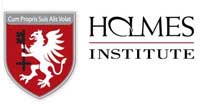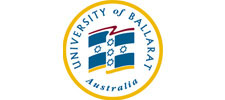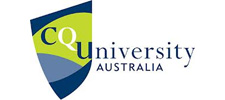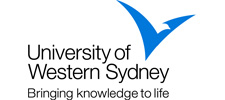USA
Study in U.S.A.
It is talked of as the land of dream fulfillment, of cutting edge quality, of mega bucks and of life as you want it to be.
Whatever you have heard about the U.S., it's true. And getting an education there is probably the simplest and most reputable way of being a part of the great American dream. And also, US education is eminently affordable, if done the right way. Unlike other parts of the world, where self-funding is the only way to pay for your education, the US education system offers an array of scholarships and loans besides earn-as-you-learn opportunities. Information on all this, and lots more, is available on this site.
We have information on nearly 2300 US Institutions and more than 600 courses. So, be it Music Therapy in University of California or Business Management in Alaska, if you would like to study in USA, we have something for you.
US Education System
The U.S. educational system is very different from its Indian counterpart. U.S.A. has more than 3,300 accredited colleges and universities, which offer a wide range of graduate and undergraduate programs.
| Types of Programs |
|
|
Undergraduate programs (Bachelor degree) :
This is the first level of post-secondary education that begins after 12 years of primary and secondary schooling. It includes at least 4 years of education and earns a bachelor's degree (Most Indian graduation courses are of 3 years duration). There are also two-year programs which earn an Associate degree. A student who has an associate degree has to study further for a minimum of 2 years to earn a bachelor's degree.
Graduate Programs (Master's & Doctorate degree) :
This is the same as post-graduate education in India. It usually involves one year or more of education depending on the subject or course, and earns a master's or doctoral degree like MBA, MS or PhD. Admission to a graduate program usually requires a minimum of 16 years of formal education. That is, 12 years of primary and secondary schooling and further 4 years of college education.
|
| |
| |
| Types of Institutions |
|
|
There is no central ministry of education in the U.S. and each institution can determine its own programs and admission standards. There are private as well as state funded colleges.
Universities are academic institutions that include one or more undergraduate colleges, as well as any number of graduate and professional schools, i.e. schools offering study for a single profession such as law.
Four year colleges are undergraduate institutions offering academic programs leading to a bachelor's degree. Community colleges or junior colleges are undergraduate institutions offering upto two years of academic instruction beyond secondary school at a relatively low cost. These offer certificate programs that last for a few months to a year as well as associate degrees.
Institutes of technology or polytechnic institutes offer specialized programs in sciences and engineering, in addition to basic sciences, humanities and the social sciences, at both the graduate and undergraduate levels.
|
| |
| |
| Accreditation |
|
Accreditation is a process by which universities and their programs are recognized for maintaining a certain level of performance and quality. Accreditation is usually done by non-governmental agencies called accreditation bodies. There are two types of accreditation : regional & professional.
Regional bodies ascertain whether colleges and universities as a whole meet certain standards of educational quality.
In addition, certain professional accrediting bodies evaluate the quality of education in specific fields like Business, Law etc.
Importance of Accreditation :
- Ensures that universities meet minimum standards.
- Only national and international form of evaluation for US universities.
- Increases the recognition of degree by employers and schools.
- Helps in case the student wishes a transfer to another university.
NOTE : Government of India recognizes only accredited U.S. universities
|
| Semesters |
|
|
US universities offer two main semester intakes :
Fall Semester (September/October) :
This is the main intake and almost all programs are offered at this times. More financial aid is also available for this semester and as funds are allocated for the entire year during this time.
Spring Semester (January/February) :
This is the mid-year intake. There is limited financial assistance available for this semester as most universities allocate funds to projects in the Fall semester.
Some universities also have a Summer intake around July.
|
International Students Issues
This section discusses the various issues faced by international students applying to the U.S. for education. We discuss here eligibility criteria for US colleges, accommodation, health insurance and rules for taking up employment while studying.
| Eligibility |
|
|
The three most important criteria for both graduate & undergraduate courses are :
1. Consistently Good Academic Record
2. Financial Support
3. Proficiency in English
Other eligibility criteria :
Undergraduate Programs (BS, BE, BA etc)
Most Colleges all over the U.S. require a minimum of 12 years of formal education. In the Indian context, it implies qualifying in class 12th examination or junior college, as applicable. The acceptable degrees include: Indian School Certificate, Intermediate Certificate, Higher School Certificate, Higher Secondary Certificate, All India Senior School Certificate.
Graduate Programs (MS, MA,MBA etc)
Most schools require qualifications comparable to a U.S. Bachelor's degree (Four-Year Degree Program) or a minimum of 16 years of formal education. In the Indian context, this implies qualifying in either a professional four-year course like engineering or other such courses.
If you have completed a 3-year degree program in India, the advisable plan of action to maximize eligibility for U.S. graduate schools is to apply for a Post Graduate degree in India. A one-year university affiliated program will make up for the fourth year of a U.S. Undergraduate degree.
Students who apply are also required to take standardized tests like GRE, GMAT, LSAT and TOEFL etc. depending on the course or program chosen. The minimum TOEFL score required is usually 550 (Paper-based test) or 220 (Computer-based test) for graduate courses. But for financial aid, a minimum score of is 600 (Paper-based test) or 250 (Computer-based test) is usually required.
|
Important
-
Professional programs like the CA, ICWA, part time diplomas such as those in management or communication may or may not be accepted. Though many universities, especially Business Schools, have started recognizing the Indian CA.
-
Independent certificate courses offered by private institutions like Aptech, NIIT, etc. may or may not be accepted based on each individual university's evaluation.
-
One-year education of a two year degree course (like M.Tech, MA etc) may not be accepted by most schools. The full course has to be completed for qualification, unless there is a recognized university exam at the end of one year.
|
No standardized policy exists regarding the acceptance of such programs. Some universities may accept the three-year Indian Graduation Degree for a few programs. Confirmation can only be obtained by either writing directly or formally applying to the universities concerned.
|
|
| Student Housing & Accomodation |
|
Each institute has its own policy for housing and may offer a range of options for single and married students. In case of universities that do offer accommodation, you will be sent a description of the on- and off-campus options available as well as the actual housing application form.
Since most campuses have limited on-campus housing, it is extremely important to submit the application form early. University housing facilities may range from a dormitory, which may be shared with other students to an apartment for a family. Some undergraduate universities may require students to live in a dormitory on campus.
Most graduate students live off-campus either by themselves or in small groups.
Students applying can contact various Indian Students Associations in the universities they are applying. Most Indian students manage to find other Indian students for shared apartments.
|
| |
| International Student Health Insurance |
|
|
This is another very important criteria for financial planning. Most U.S. Institutes require that all students including international students be covered by an insurance policy that will protect them against medical, hospital bills if they get sick or are injured while studying at the college, as health care is very expensive in U.S. The insurance policy is approximately about US $ 600 per year.
The international student office of the college you choose to attend will supply the detailed information on insurance policies and the procedure to obtain proper coverage.
|
| |
| |
| Part-Time Work & Jobs |
|
|
Employment opportunities for international students are limited. You should not plan on earning substantial money from a part-time job to help pay for your studies.
On campus : Though international students are allowed to work on campus, these jobs are often difficult to obtain and do not provide sufficient funds to sustain education costs. Students with good academic standing have a better chance.
Off campus : It may be possible to for students to avail of limited off-campus employment, which is subject to strict regulatory guidelines. It requires approval from US Immigration & Naturalization Service. This approval is not easy to get and depends on a special need.
Practical Training : In addition, there may be opportunities for practical training which entail a period of authorized employment, designed to allow foreign students to have professional work experience related to their field of study. For further details, contact the foreign student adviser at the university, after you are enrolled.
|
Students Visa Information (F-1)
To enter the United States as a student, you must apply at a US Embassy or Consulate for a student visa. You are required to make an appointment in India to apply for a visa. You can apply for a visa only after you receive the requisite I-20 or IAP-66 form from the institution you have been accepted to. The information outlined below is designed to help you understand the visa process.
| Types of Visa |
|
|
There are mainly two types of student visas :
-
F-1 (Student Visa). The F-1 visa is for full-time students enrolled in an academic or language program. F-1 students may stay in the US for the full length of their academic program plus 60 days. F-1 students must maintain a full-time course load and complete their studies by the expiration date listed on the I-20 form.
-
J-1 (Exchange Visitor Visa). The J-1 visa is issued for students needing practical training that is not available in their home country to complete their academic program. The training must be directly related to the academic program. The J-1 visa obligates the student to return to their home country for a minimum of two years after the end of their studies in the US before being eligible to apply for an immigrant (permanent residence) visa.
The rules and regulations governing the entrance of all international students into the United States are complicated and should be properly looked into before applying for a visa.
|
| Visa Application Procedure |
|
|
Applicants should apply at the consular section of the American Embassy any working day, Monday through Friday, between the hours of 8:30 and 10:00 AM.
Documents required are :
- Valid Passport
- One Passport size photograph (Black and White or Colour)
- A Non-immigrant Visa Application (Form 156) available from the Consular section.
- Form I-20 executed by the authorizing official of institution concerned, signed by the applicant.
- Evidence of financial ability to cover the costs of the education and maintenance involved
- Visa fee to be paid in Indian Rupees by Bank Draft
When to apply :
An applicant may apply for a student Visa not earlier than 90 days before the registration date specified on the FORM I-20. If the registration date is already passed or the applicant cannot reasonably expect to arrive at the school by the registration date, the applicant should obtain an amended I-20 or a letter of extension from the issuing institution stating by what date the applicant may arrive.
After the Completed application forms along with the documents are submitted;
In most cases, the visa will be issued within a few hours or days of the submission of the application. In some instances, the process may take longer depending on the time of year, consular caseload or other factors.
If your application is denied, you should ask the Consular Officer for a "written denial decision." This will provide you with the official reason for your visa denial.
- Your total personal annual income.
- Total annual income of your Parents.
- Your average annual living expenses.
- Some details of your and your parents' assets.
- Sources of funding for your education other than from the University.
|
Note : Even if no assistantship is available at the time of admission, most Indian students manage to get some kind of financial aid from the university after one or two semesters. So it makes sense to go to the US for education if you can manage one year's expenses on your own.
|
|
|







 Study In
Study In